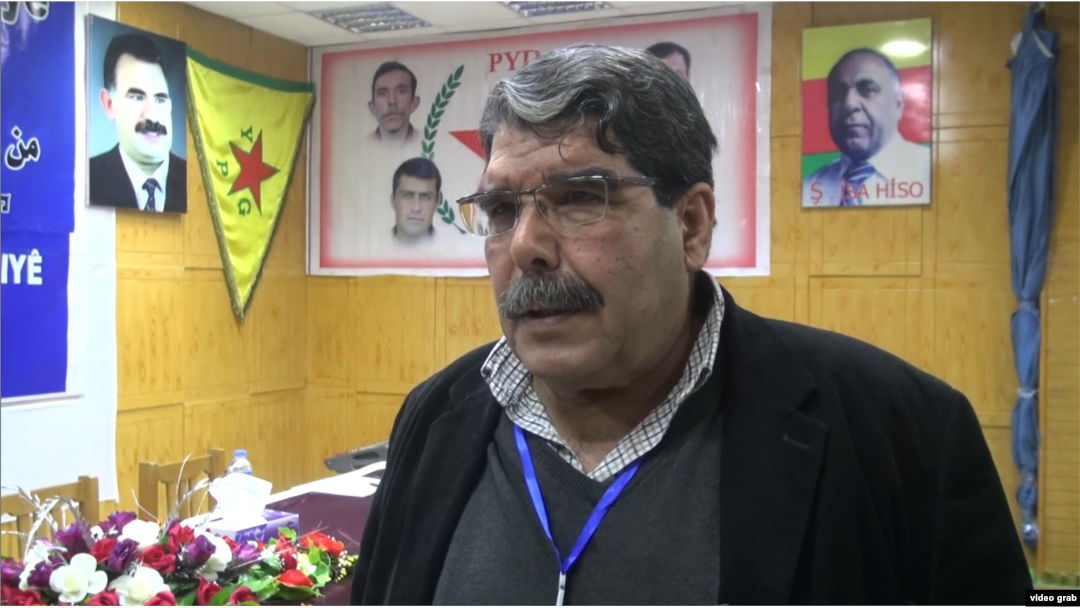Rex Tillerson is making his first visit to key NATO ally Turkey as U.S. secretary of state.
The forthcoming operation to remove Islamic State from its self-declared capital of Raqqa in Syria is, according to U.S. officials, expected to top the agenda of Tillerson's visit to Ankara. He is scheduled to meet with Turkey's political leadership including President Recep Tayyip Erdogan.
Washington's support of the Syrian Kurdish rebel group the PYD and its militia the YPG in the war against Islamic State has, and remains, a point of tension with Ankara, which accuses them of being linked to the PKK, which is fighting the Turkish state.
'Critical topics'
"There are certainly a number of critical topics starting with Syria," says Sinan Ulgen, a visiting scholar at the Carnegie Institute in Europe. Ulgen says there is high exception in Ankara over the election of Donald Trump.
"After Donald Trump took over the new presidency ,Turkey had tried to influence the new U.S. decision makers, to terminate the link between U.S. and Syrian Kurds the PYD, an entity Ankara sees as a terrorist organization that is attacking its core interests. So that's the real difficultly here."

FILE - Salih Muslim, lead of the Syrian Kurdish opposition group Democratic Union Party (PYD), speaks to VOA’s Kurdish service in Hasakah, Syria, in the screen grab from Jan. 23, 2017.
Officially, U.S. President Trump has not made a decision about continuing to support the Syrian Kurdish groups, which make up the backbone of the Syrian Democratic Forces currently fighting Islamic State and marching on Raqqa. But on the ground, U.S. support has been markedly increased in the face of Ankara's sensitivities.
Analysts suggest Ankara will be looking for guarantees from Tillerson that Kurdish forces will quickly withdraw if they take part in capturing Raqqa.
Tillerson could help mitigate Ankara displeasure if, as expected, he addresses the question of the creation of safe haven areas in Syria for the return of Syrians, a key demand of Ankara.
"There will be little surprise if U.S. sides with the PYD over Raqqa. It's like a slow motion train crash. Everyone can see it's happening," observes former senior Turkish diplomat Aydin Selcen, who served across the region and in Washington.
Possible visit
But Selcen claims that with Ankara possibly eyeing a presidential state visit to Washington, it will be keen not to allow disagreements over Syria to sour the Tillerson talks.
"For a middleweight country, but at the same time a regional power like Turkey, to push forward its own agenda, Ankara would need U.S. support in critical areas. And now that there is a new administration in place, there are high expectations in Ankara, not maybe anymore on the Syrian front, but on other fronts that Turkey sees a partner in Washington, D.C.," Selcen said.
FILE - Free Syrian Army fighters along with Kurdish People's Protection Units (YPG) fighters gather at the eastern entrance to the town of Tel Abyad of Raqqa governorate.
Iran is predicted to be a key area of convergence of interests and likely to feature in the Tillerson talks.
"Containing Iran's more aggressive regional behavior is an area of convergence," analyst Ulgen predicted. "For Turkey, whose soldiers are in Syria and Iraq, I think there will be quite a number of commonalities between Ankara and the U.S. administration on how to contain Iran."
Ankara's relationship with Moscow is also predicted to be on the agenda of the U.S. secretary of state.
In the past few months, there has been a deepening concern among Turkey's NATO allies about the direction the country is moving in -- concerns that Ankara appeared happy to fuel, seeing Russian rapprochement as a useful card in its dealings with its Western allies.
But the rapprochement could be showing signs of cooling.
"The recent Moscow summit between the two leaders did not produce the positive results that Ankara was hoping for. So the Russian card seems to me no longer in the hands of Ankara," former diplomat Selcen suggested.
FILE - Russian President Vladimir Putin, left, shakes hands with Turkey's President Recep Tayyip Erdogan during their meeting in the Kremlin in Moscow, March 10, 2017.
He predicted that could be an impetus to U.S. Turkish relations.
"Ankara is in a position to lean back again to its traditional alliance with the U.S. and the West. But it may not be so willing to come up with strong rhetoric to say that, the rhetoric even can be contradictory, but this what is going to happen in my opinion," Selcen said.
Tillerson still will face other thorny issues, most notably Ankara's demand for the extraction of U.S. based Turkish cleric Fethullah Gulen, blamed for July's failed coup attempt.
Washington insists it is a matter for the courts, a stance observers say Ankara appears to be ready to grudgingly accept.
Secretary Tillerson likely will face calls for Gulen to be taken into custody, pending Ankara's extradition request.
FILE - U.S. based cleric Fethullah Gulen at his home in Saylorsburg, Pennsylvania, July 29, 2016. Turkey has issued arrest warrants for 55 people suspected of giving financial support to Gulen , who is accused of orchestrating a failed military coup in July.

